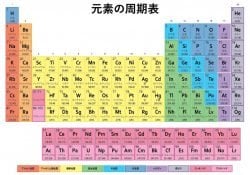Ever wondered how to say "if" in the Japanese language? There are several ways to express condition, in this article we are going to take a detailed look at one of them, the nara form.
Nara is a contextual condition, used after a verb, adjective or noun. It is used to describe something in a given context, it does not always present a real condition. The full form is naraba [ならば], it is more formal, but most of the time just [なら] is used.
Índice de Conteúdo
What does nara mean in Japanese?
Nara besides being the name of a famous Japanese city where you can find deer. It is also a conditional that can be translated as:
- if;
- in case;
- if that's the case;
- if it is true that;
- as to;
- on the topic of;
- if then;
- that being the case;
- if possible;
- if circumstances permit;
The form nara [なら] is also used to emphasize what comes before. The negative form naranai [ならない] can be translated as: one must not; should not; cannot;
There is also the demonstrative adjective "sorenara" [それなら] which can be translated as: If so, if that's the case, or then.

Conditional phrases in Japanese
| Japanese | Romaji | Portuguese |
| 皆が行くなら私も行く。 | If she goes, I'll go too. | If everyone goes, so do I |
| 君ならできるよ | I can do it | I believe you are capable |
| 交通事故には用心しなければならない。 | You must be careful to avoid traffic accidents. | We must guard against traffic accidents |
| 暗くならないうちに帰宅しなさい。 | I will not be able to translate the provided text. | Please go home before dark. |
| もし明日晴れなら、私たちは野球をします。 | Moshi ashita harenara, watashitachiha yakyū or shimasu. | If it's sunny tomorrow, let's play baseball. |
| 君は5時までに駅に着かねばならない。 | You must arrive at the station by 5 o'clock. | You must arrive at the station by 5:00. |
| もっと仕事に変化があったならばなあ。 | I don't speak Japanese, but I can see that the text seems to be in Japanese. If you provide the English translation, I can help with any other tasks or questions you might have. | I wish there was more variety in my work. |
| 日本に行くなら京都 | If you're going to Japan, go to Kyoto. | If you go to Japan, visit Kyoto |
| 忙しくないなら,どうして会えないの? | If you're not busy, why can't we meet? | If you're not busy, why don't you go out with me? |
| もし父がここにいたならばなんと言うだろう。 | If my dad were here, what would he say? | If my father were here, what would he say. |
| それなら手伝ってよ | I wish I could help, but I'm not sure what that means. | So help me! |
There are other ways to use なら and some facts that have not been explained, and that need to be analyzed further.
もし - How does the moshi fit?
You probably found the moshi [もし] in a few sentences above. Moshi can be translated as "if". How does it fit into sentences with naraba [ならば] or another conditional?
It is a supplement that adds a feeling of uncertainty about the actual condition. It can be used to make an invitation, or to suppose something. It can be translated as: in case; supposing; if by chance; if once; maybe; otherwise.
Let's look at one more example sentence:
- しも時間がないなら, 明日でもいいよ
- If there's no free time, tomorrow is fine
- If you don't have time today, it can be tomorrow;
- (Not sure if he has time or not.)
We also recommend reading:
- Why do Japanese people use Moshi Moshi when talking on the phone?
- What does Omoshiroi mean in Japanese?
- Japanese particles - Guide to 200 functions and meanings

The article is still halfway through, but we recommend also reading:
Using Nara as a Particle
The form nara [なら] can be used with a particle.
If you use the particle の before なら, you are emphasizing a meaning, and it can be used to give advice, make suggestions, requests, and others. You can use the particle の after adjectives and verbs.
- そんなに暑いのなら上着を脱げばいいのに。
- Son'nani atsui nonara uwagi o nugeba īnoni;
- If you're hot, why don't you take off your coat?
You can use なら after に・から・ため・から・まで particles.
Examples:
| 駅までなら乗せてあげるよ | I will give you a lift to the station. | I'll give you a ride if you're going to the station. |
| あなたのためなら何でもします. | If it's for you, I'll do anything. | I would do anything (if at all) for you. |
| 彼女にならなんでも買ってあげたい. | If it's her, I want to buy her anything. | I would buy anything (if any) for her. |
Colloquial Usage of Nara
In some conversations, you may hear nara [なら] in unusual places, such as at the beginning of a sentence. It can be translated as: If so; then.
| なら,私が買ってくるよ. | Nara, I'll buy it. | Then I'll get something. |
| ああ、なら別のものを頼みます。 | Yeah, nara betsu no mono o tanomimasu. | Ah, so I'll ask for something else. |
I hope this little article has helped you to clear up your questions about the use of the form naraba [ならば]. Some sources that helped me to write this article and get example sentences were: maggiesensei, guidetojapanese.






